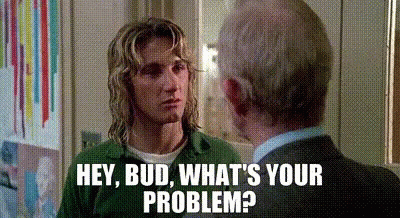“After 12 years in the Major Leagues, I do not feel that I am a piece of property to be bought and sold irrespective of my wishes.”[1]
Curt Flood, 1969, letter to Commissioner Bowie Kuhn
“People look at this [strike] as individuals not having a chance to break records. But guys have sacrificed careers to make things better for a lot of young baseball players…getting an agreement is more important than hitting .400.”[2]
Tony Gwynn, August 11, 1994

What’s Bud Selig’s problem? Why has he always hated Oakland? Is it the fact that Oakland is the hometown of the man who had the audacity to challenge baseball’s feudal system? Seems plausible. After all, Curt Flood’s grievance put a spotlight on baseball’s medieval labor practices and helped bring about free agency just five years later. That must’ve been quite an annoying development for people of Selig’s ilk. Cold hard cash out of the wallets of owners from that day forward. Is that why Selig hates Oakland? Or does he hate Oakland simply because he’s a nerd?
Selig’s love of money is beyond reproach, and he has always done his best to keep it in the hands of baseball’s owners. Remember, it was Selig’s hardline approach against the Major League Baseball Players Association in 1994 that led to the cancellation of the World Series for the first time since 1904. It wouldn’t be surprising if Selig regards Flood as one of the great villains of history. Is Oakland paying the price for Selig’s vendetta against Flood?
Let’s set Selig aside as a weirdo. In civilized circles, Flood is regarded as a hero. After Flood set the example, many players—by striking—have sacrificed paydays for the progress of playerkind. But how many can say they sacrificed their careers? Because of the ground Flood broke in 1969, players continue to make gains at the negotiating table. In light of this history, it is mystifying that the MLBPA has cast its lot with one of the greatest forces for salary suppression in the western world—John Fisher. Marcus Semien can confirm.[3] Instead of holding Fisher to the binding agreement deadline required for revenue sharing—the very deadline he cited as reason for leaving Oakland—the MLBPA granted him a reprieve.[4] Whereas a binding agreement was the bar in Oakland, a “framework of an agreement” was sufficient in Las Vegas.[5] When was the last time the MLBPA caved so easily?
We hold out hope that the MLBPA will change course and have the back of Flood’s hometown. A good start would be nixing Fisher’s plan to make the A’s refugees in a minor league ballpark in Sacramento. We can’t think of a better way for the MLBPA to keep with its tradition of honoring past players who paid forward the labor cause.
[1] Curt Flood, as quoted in Gabe Lacques, “50 years after his letter changed baseball forever, Curt Flood’s sacrifice still resonates,” usatoday.com, 24 December 2019, Curt Flood’s letter, sacrifice still resonate in MLB 50 years later (usatoday.com).
[2] Tony Gwynn, as quoted in Kevin Kaduk, “August 11, 1994: Scenes from a lost MLB season,” sports.yahoo.com, 8 August 2019, 1994 MLB strike: The last day of baseball on Aug. 11 (yahoo.com).
[3] Jake Montero, “A’s reportedly offered Marcus Semien bizarre contract before he decided to sign with Blue Jays,” knbr.com, 28 January 2021, A’s reportedly offered Marcus Semien bizarre contract before he decided to sign with Blue Jays – KNBR.
[4] “We were running out of time…there was an agreement between the players union and the owners that the A’s had to have a binding agreement on a new stadium by January of 2024, or we would lose our revenue sharing.” John Fisher, as quoted in NBC Bay Area staff, “The John Fisher interview: Oakland owner talks Vegas, backlash and future plans” nbcbayarea.com, 23 August 2023, Oakland A’s owner John Fisher goes on record in rare interview – NBC Bay Area.
[5] Associated Press, “Athletics get MLB, union OK to receive revenue sharing in ’24,” espn.com, 16 January 2024, Athletics get MLB, union OK to receive revenue sharing in ’24 – ESPN.